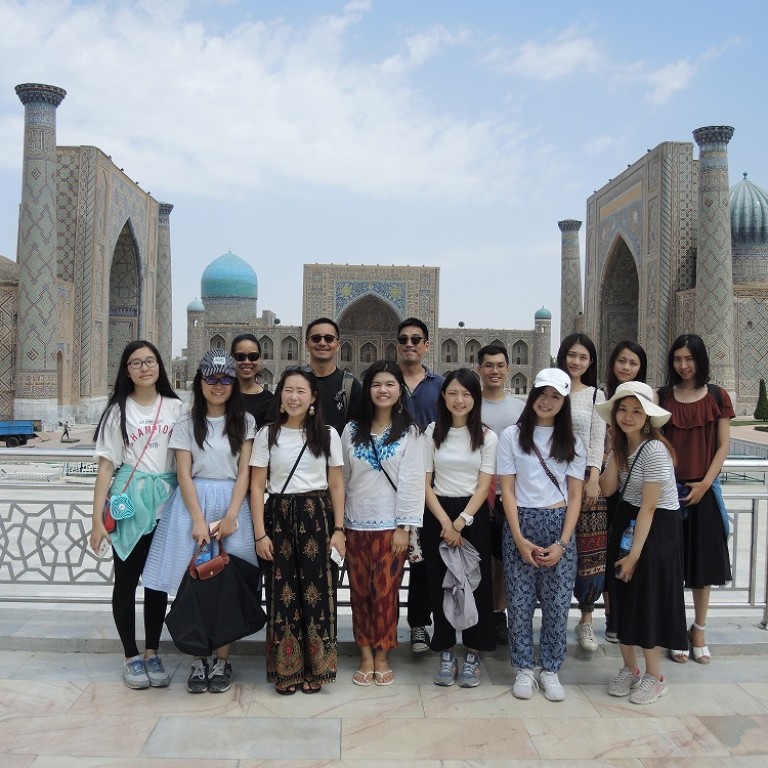
Serving the Community
The story of Service-Learning (S-L) at Lingnan University (LU) started in 2004, with the launch of the Service-Learning and Research Scheme (SLRS). The scheme was mainly funded by a donation from a foundation, and was designed as a pilot program to aid the development of university-wide Service-Learning programmes.
[Sponsored Article]
Two years later, the Office of Service-Learning (OSL) was formed to offer learning opportunities to students to apply their academic knowledge in practice. It is the first time a local university has set up a standalone S-L office. The OSL nurtures change-makers by encouraging students to use their academic knowledge, via an experiential learning model, to engage in community service.
S-L has a significant role to play in a liberal arts education, as does the OSL, says Associate Director Dr Albert Ko Wing-yin. SLRS is also important for student development, he says. These programmes help to broaden the students’ horizons, and sharpen their minds, Ko notes.
Academic study with service
Ko says the university’s S-L model is a pedagogy which combines rigorous academic study with meaningful community service and reflection. “It is a high-quality teaching and learning strategy that aims to facilitate student learning in terms of academic knowledge and personal development,” he says.
“By using S-L to serve the community, students and course instructors embody Lingnan University’s long-standing motto, ‘Education for Service’,” says Ko. Over 800 students participate in S-L projects each year, supported by different academic departments and social agencies.
Ko says that starting from the 2016/17 intake of first-year students, S-L became a graduation requirement. To fulfill this new policy, each student is required to participate in at least one course involving an S-L experience, and complete 30 hours S-L experience including training and service hours before graduating.
Project Highlights
Ko gives two examples of S-L projects which demonstrate well the essence of S-L and its social impact.
Students who attended the course “To Care about Our Society - Social Marketing” participated in a S-L project in which they understand the service of NGOs and their marketing needs. They then apply marketing strategies learned in class to organize promotion and marketing initiatives for the NGOs. “Students are able to contribute to the society with their business knowledge,” Ko says.
A second S-L programme, which focused on the development of “One Belt One Road” was launched last summer. Students who joined this programme visited three Belt and Road countries in Central Asia including Kazakhstan, Kyrgyzstan and Uzbekistan. “Students exchanged with local higher education institutes and non-governmental organisations to learn about the culture, history and ecology of these countries. It was not an easy job for our students, because they needed to bear the extremely high temperatures in some desert areas, which could be as high as 60 degrees centigrade,” says Ko. The programme may be challenging, but Ko says it is useful. After students return to Hong Kong from the trip, they will work on a policy paper to provide constructive suggestions in fostering participation of youth in Hong Kong in “Belt and Road”-related academic and cultural activities.
Enhancing problem-solving abilities
Ko says that S-L is a key part of a liberal arts university. “By participating in designated courses, our students learn more about societies, the world, and people from different walks of life. As a result, their communication skills are nurtured. Eventually, their problem-solving ability will be enhanced,” he says.
Ko points out that S-L experience can help students deal with problems independently and understand social issues from different perspectives, thus tightening their engagement with the society.
A unique model
The Lingnan model of Service-Learning is a high-quality teaching and learning strategy. Through this synergy, students can develop scholarship, civic orientation, and concrete professional skills. S-L experience helps facilitate a lifelong commitment to service, research and leadership. S-L includes three components: academic, service, and reflection.
Academic
- This covers the whole spectrum of disciplines, including the humanities, business, and the social sciences.
Service
- Increase the knowledge of issues.
- Contribute to community development.
- Address social and environmental issues.
- Improve the well-being of individuals and communities.
Reflection
S-L is distinct from community service because it includes a structured learning process. Reflection and critical analysis are used to develop academic and social awareness, and students are encouraged to take an active role in learning and service. The S-L philosophy fits perfectly with LU’s mission as a liberal arts university.
Figures have an impact
Service-Learning at Lingnan University
Since 2006
- Over 209 courses with S-L.
- Over 70 teachers deliver courses with S-L.
- Over 6,200 students participated.
- Over 240 community partners in Hong Kong and internationally.
- S-L became a university graduation requirement starting with the 2016/17 intake.
